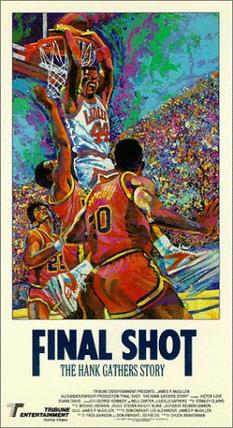| Final Shot: The Hank Gathers Story | |
|---|---|
 VHS cover | |
| Genre | Biography Drama Sport |
| Written by | Fred Johnson |
| Screenplay by | Fred Johnson Don Enright Ed Fields |
| Story by | Fred Johnson |
| Directed by | Charles Braverman |
| Starring | Victor Love [1] Duane Davis George Kennedy Nell Carter Sam Hennings |
| Music by | Stanley Clarke |
| Country of origin | United States |
| Original language | English |
| Production | |
| Executive producer | Russell Vreeland |
| Producers | Don Enright Les Alexander James P. McGillen [2] |
| Production locations | Los Angeles Philadelphia, Pennsylvania [3] Santa Monica, California |
| Cinematography | Stephen Blake |
| Running time | 92 minutes |
| Production companies | McGillen Entertainment Alexander, Enright & Associates Tribune Entertainment [4] |
| Budget | $3 million [5] |
| Original release | |
| Network | First-run syndication [6] [7] |
| Release | March 29, 1992 |
Final Shot: The Hank Gathers Story is an American 1992 sports drama biography television film [8] about the life of Loyola Marymount basketball player Eric "Hank" Gathers, written for Tribune Entertainment by Fred Johnson, Don Enright and Ed Fields, and directed by Charles Braverman. [9] [10] [11] [12] [13]